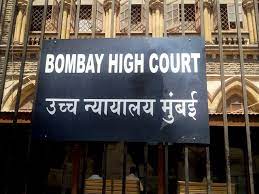The reassessment notice has been quashed by the Bombay High Court. The assessee explained the creditor’s creditworthiness and the transaction’s legitimacy.
In the case of Vapi Infrastructure and Industrial Township LLP Versus Income Tax Officer Ward (Writ Petition No. 996 Of 2022), the division bench of Honourable Justice K.R. Shriram and Justice N.R. Borkar observed that the proposed re-opening was purely based on a change of opinion. The creditworthiness and details provided by third-party lenders also satisfied the assessing officer.
Facts of the case:
The petitioner/assessee, a limited liability partnership firm, is in the real estate and development business. The petitioner filed an income tax return for the fiscal year 2014-2015, declaring total income as “Nil.” The return was chosen for review by CASS. A Notice under Section 142(1) of the Income Tax Act was also issued and served on the petitioner, along with a questionnaire. Petitioner filed its reply, including a note on the nature of the business, return of income, and so on, as well as a profit and loss account and balance-sheet, relevant scheduled balance-sheet, and bank account details.
Under Section 133(6) of the Income Tax Act, the department issued notices to various parties requesting verification and confirmation of loan transactions and requesting supporting documents. The parties had responded and also revealed their identities, explained their creditworthiness, the legitimacy of the transactions, the source of funds, and so on.
The assessment for the fiscal year 2014-2015 was completed in accordance with Section 143(3) of the Income Tax Act. The assessment order was issued after taking into account the responses of third parties to notices issued as well as all documents and explanations submitted by the petitioner.
The petitioner received a reassessment notice from the department alleging that there were reasonable grounds to believe that the petitioner’s taxable income for fiscal year 2014-2015 had escaped assessment.
The department issued the reassessment notice because the petitioner had unsecured loans totaling Rs. 1,17,48,08,731 during the fiscal year 2014-2015. The net amount of loans received during the year was Rs. 27,87,70,259 out of this. The petitioner provided confirmation from the loan providers, but it was discovered that the loan providers’ income was very low during the year. Because the loan from third parties was credited in the petitioner’s books during the year in question, and because the assessee provided no explanation about the nature and source of the loan, the credit worthiness of the creditor, and the genuineness of the transaction, the source of the loan remains unexplained and must be added to the assessee’s total income.
The petitioner objected to the reassessment on the grounds that information had been provided to the assessing officer, who had independently issued notices under Section 133(6) of the Act, to which third parties had responded and provided the required documents explaining their identity, creditworthiness, and the genuineness of the loans provided, and after being satisfied, the assessment order was issued. As a result, it was incorrect to say that the source of the loans remained unknown, and the re-opening was not permitted because it was only due to a change of opinion.
Court’s Findings:
While quashing the reassessment notice, the court stated “Even if the assessment order is silent, the Assessing Officer is presumed to have considered the issue and is satisfied with the explanation provided by the assessee once a query is raised and answers are provided. Furthermore, in this case, notice was issued under Section 133(6) of the Act to third-party lenders who, as admitted in the affidavit in reply, provided confirmation about the transaction and credit worthiness.”
Judgement Reviewed By Manju Molakalapalli.


